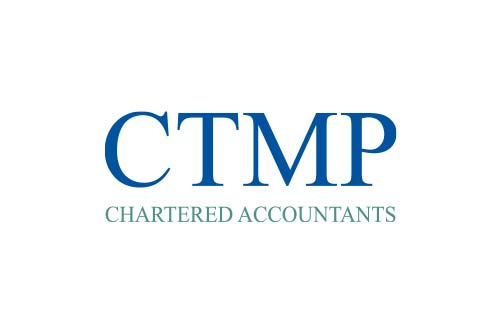
15 Apr Avoiding Common Accounting Mistakes In The Healthcare Sector
The healthcare sector is known for its complexity, and managing finances requires high expertise. Healthcare accounting mistakes can have severe consequences, from regulatory penalties to inefficient cost management. Inaccurate financial records can hinder the growth and sustainability of healthcare organisations, and in some cases, it can even affect patient care.
At CTMP Accountants, we specialise in providing financial services tailored to the healthcare industry. We offer a full range of services, from tax compliance and financial planning healthcare to auditing healthcare finances. Our deep understanding of the sector ensures that we can help minimise financial risks and optimise the financial health of your practice.
Speak to our expert accountants today- call us on 0208 776 0200. Let’s discuss your accounting needs in detail.
Trust CTMP Accountants for all your healthcare financial needs. Our expert team provides tailored accounting services, ensuring compliance, optimising tax positions, and streamlining financial management for healthcare professionals.
In this blog, we’ll discuss the most common accounting problems in healthcare and offer tips on how to avoid them.
Understanding The Importance Of Accurate Healthcare Financial Management
Accurate healthcare financial management is critical for ensuring compliance with regulations and maintaining a healthcare organisation’s operational efficiency. Whether managing a small private practice or a large hospital, financial reporting healthcare must be handled carefully to ensure resources are used effectively, and costs are controlled.
With increasing regulatory requirements and the complexity of the revenue cycle accuracy, healthcare organisations must prioritise sound financial practices. Failing to do so can expose businesses to healthcare financial risks that could lead to unnecessary expenses, tax issues, or even audits.
Common Accounting Mistakes In Healthcare
1. Inaccurate Financial Reporting
One of the most common accounting mistakes in healthcare is inaccurate financial reporting. Depending on the region, healthcare organisations must adhere to strict financial reporting standards, such as the Generally Accepted Accounting Principles (GAAP) or International Financial Reporting Standards (IFRS). Inaccurate financial reporting can result in misleading statements that affect decision-making and potentially expose the organisation to regulatory penalties.
Inaccurate financial statements may also affect cash flow predictions, making it difficult to manage finances efficiently. Ensuring that accurate, up-to-date financial records are kept is essential to avoid costly errors.
2. Failure To Track Revenue Cycle Accurately
Revenue cycle accuracy is crucial for healthcare organisations. It encompasses all the steps in billing and collecting payments for healthcare services. Mistakes in tracking this cycle can result in delayed payments, missed charges, or lost revenue. Many organisations fail to implement a robust system for auditing healthcare finances, which makes it challenging to ensure that every service rendered is correctly billed and collected.
Ensuring that the revenue cycle is tracked carefully and that billing codes are correctly applied is vital to avoid accounting problems in healthcare.
3. Neglecting Healthcare Financial Compliance
Healthcare financial compliance is an area where many organisations make costly mistakes. Non-compliance with regulations such as the Health Insurance Portability and Accountability Act (HIPAA) or other national and local financial regulations can lead to hefty fines or legal issues. Healthcare administration must ensure that financial practices meet regulatory standards, and that staff are well-trained to handle sensitive financial data properly.
Regular training on compliance, as well as the use of compliant software systems, can help mitigate this risk.
4. Inadequate Cost Management In Healthcare
Effective cost management in healthcare is essential for maintaining a profitable and sustainable organisation. A failure to control costs can lead to financial instability, affecting the healthcare provider and its patients. One of the most common errors is not clearly understanding fixed and variable costs, leading to inefficiencies in budgeting and financial forecasting.
It’s essential to regularly assess operations costs, including overheads, staffing, and supply chain expenses, and implement strategies to reduce waste and maximise efficiency. A detailed financial planning healthcare process is key to identifying areas where cost management can be improved.
5. Overlooking Cash Flow Management
Cash flow is the lifeblood of any organisation, but it’s especially critical in healthcare, where large expenditures are often needed to maintain operations, such as medical equipment, payroll, and supplies. Failing to manage cash flow correctly can cause financial strain, even for profitable organisations.
Many healthcare businesses make the mistake of not closely monitoring their cash flow. This can lead to liquidity problems and difficulty meeting operational expenses. Implementing tools for financial reporting and regularly reviewing cash flow forecasts will help keep track of your financial position and prevent shortfalls.
6. Lack Of Financial Planning and Forecasting
Financial planning in healthcare is essential for long-term growth and sustainability. Without precise financial projections and a well-thought-out budget, healthcare organisations risk making uninformed decisions that can hurt their financial stability. Planning helps set goals, allocate resources efficiently, and anticipate challenges in advance.
Healthcare providers must ensure that financial management processes include long-term forecasting, staffing requirements, equipment purchases, and capital investment. Proper financial planning allows healthcare organisations to adapt to changing conditions and regulations.
7. Inconsistent Auditing Of Healthcare Finances
Regular audits are key to any sound financial management strategy, yet many healthcare organisations neglect this essential task. Regular auditing of healthcare finances helps ensure the accuracy of financial reports but also helps identify potential fraud, inefficiencies, and areas for improvement.
Auditing ensures that all financial transactions are legitimate and that all revenues and expenditures are accounted for correctly. Healthcare organisations should schedule routine internal and external audits to maintain transparency and accountability in their financial operations.
How To Avoid Accounting Problems In Healthcare
1. Implement Seamless Financial Systems
The first step in avoiding accounting problems in healthcare is to implement a comprehensive, seamless financial management system. Use accounting software that integrates with your practice management systems to streamline billing, payments, and reporting. This ensures that revenue cycle accuracy and financial records are current.
2. Hire Qualified Professionals
Ensuring that your accounting team is well-versed in healthcare finance is essential. Healthcare accounting requires a specialised skill set, and hiring professionals with experience in healthcare financial management is key. These professionals will understand the unique challenges of healthcare finance and be able to navigate the complexities of regulatory compliance.
3. Regular Training And Audits
Staff training on financial processes and regulatory compliance is vital for minimising errors. Additionally, auditing healthcare finances regularly will help identify mistakes early, ensuring any issues are addressed before they become serious problems.
4. Monitor Cash Flow And Costs
A clear understanding of cash flow is crucial for managing a healthcare business. Regular monitoring of cost management in healthcare ensures that resources are used efficiently and expenses are kept in check.
5. Use Financial Planning Tools
Utilising advanced tools for financial planning will allow organisations to forecast financial needs, prepare for growth, and plan for potential risks. These tools can also track long-term goals and manage financial obligations effectively.
Contact us
Why Choose CTMP Accountants For Healthcare Financial Management?
At CTMP Accountants, we offer comprehensive and tailored financial solutions designed specifically for healthcare professionals. With over four decades of experience, our team understands the unique financial challenges faced by doctors, consultants, dentists, and other healthcare providers.
Here’s why you should trust us with your accounting needs:
- Expertise in healthcare financials: We offer a full range of services, including tax planning, VAT returns, payroll management, and auditing, all tailored to the healthcare sector.
- Fixed fees and transparent pricing: Our services come with fixed fees, ensuring you have no unexpected charges. We value transparency in all our dealings.
- 24/7 support: Our team is accessible around the clock, providing expert guidance whenever you need it.
- Dedicated service: From tax compliance to self-assessment for medical professionals, we simplify the complexities of healthcare accounting so you can focus on what matters most—patient care.
Partner with CTMP Accountants to streamline your finances and optimise your practice’s financial health.
Get in touch today to learn how we can support your business.


